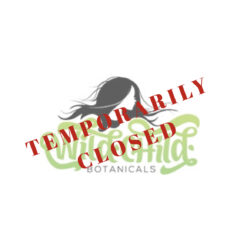
Who wants to be smelly? Who wants to have bacteria? I mean, it all sounds like a no- brainer when first presented with the topic. Right? Bacteria sounds bad, therefore I don’t want or need it. Being smelly isn’t so great either. So if you can remove the germs that cause odor, have at it! We were all on board!!
It wasn’t so long ago that anti-bacterial soap jumped on the scene. It was the mid 1980’s when two inventors patented the soap formulation. Although these two get the credit for the anti-bacterial movement, it could actually be found as far back as the 1940’s through Dial bar soap. They didn’t use the phrase “anti-bacterial” back then. They advertised the soap that would kill odor-causing germs on the body. And this soap was one of the most popular soaps for around twenty-five years. It wasn’t until the 1970’s that the primary germ-killing agent, Hexachlorophene was found to cause brain cancer in infants and was removed from the market. Brain cancer!! Can you believe that? How many infants developed brain cancer before the connection was made to the soap and subsequently removed from the shelves?
Although Hexachlorophene was removed, other ingredients with supposed anti-bacterial properties were introduced during the big anti-bacterial movement I mentioned above. For the past thirty years we have been using anti-bacterial and anti-microbial cleansers probably daily for most believing that it was better than regular soap. An article in Science Daily in 2012 shared the research from John Hopkins’s Children’s Center that linked anti-bacterial personal-care products to allergy risks in children. Science Daily
In late 2017, the FDA issued a final ruling that triclosan, the most common anti- bacterial ingredient, along with 23 other active ingredients will not be allowed to be used in the making of soap products in the US. FDA Ruling There has been no evidence to show that using ingredients such as these are more beneficial than just using regular soap to wash. There has however, been some short-term animal studies (yep.. more needless animal studies… if we didn’t use harsh ingredients than we would not need animal ‘studies’) that have shown exposure to these types of ingredients can have a negative impact on some thyroid hormones.
A little comforting and good news…. these ingredients will be completely removed from personal care products by the beginning of 2019, (not soon enough but its a start) they will still remain in clothing, furniture, toys, and kitchenware for now as the EPA conducts their research.
So what can you do? Arm yourself with knowledge and be an avid label reader. You are the front lines of protection for yourself and your family while the governmental agencies sorts this mess out. And who is to say that they won’t just replace these toxic ingredients with more toxic ingredients for the next 15 years?
And wash your hands with good ole regular soap. Use a trusted company to purchase your personal care products. If you can’t walk into a store and ask any employee about the products you are purchasing, then go somewhere else. I just happen to know one of the best places if you don’t want to do your own research. 😉 www.wildchildbotanicalsusa.com
Want to know more about Wild Child Botanicals? Follow our Facebook page at Wild Child Botanicals Facebook

